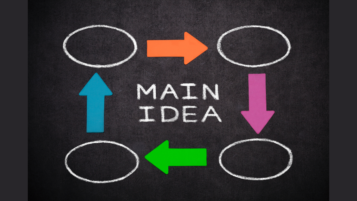English
On the Idea of “Product Evangelist” in Technical Communications
I love product evangelists for two good reasons: (1) I love software products. I have no idea how we lived back in the 60s and 70s without any software doing all these wonderful things on our desktops, laptops, and mobile devices. (2) I like and admire the product evangelists that I’ve met both in person…
Read MoreA Great Government Web Site Dedicated to Plain Language: http://www.plainlanguage.gov
© 2010 Ugur Akinci President Barack Obama ushered in a new age in technical communications by signing the “Plain Writing Act of 2010” on October 13, 2010. According to this, within one year, all U.S. government agencies are supposed to generate only documents written in a plain language. I found this excellent federal web site dedicated to the Plain…
Read MorePresident Obama Signed Plain Writing Act of 2010
© Ugur Akinci A new era has begun in the United States when President Obama signed the Plain Writing Act of 2010 on October 13, 2010. According to this, all U.S. government agencies and offices are now mandated to create all their documents and communications in clear, uncomplicated English. Here is the text of…
Read MoreHow to Avoid Dangling Participles in Your Technical Writing
© Ugur Akinci “Dangling Participles” is the kind of writing error you should avoid in your technical documents because it changes the meaning of a sentence and often leads to unintended humor. But first — what is a “participle”? PARTICIPLE is the present- or past-participle form of a verb which is used as an ADJECTIVE.…
Read More4 Levels of Editing in Technical Writing
Writing is re-writing; that is, editing. Technical editing is a crucial part of all technical writing projects. But we have to remember there are multiple levels of technical editing which makes the task all the more challenging. LEVEL 1 EDITING Spec Editing. Does the document satisfy all the macro requirements specified in the Documentation Plan?…
Read MoreLocalization – Problem with Translating Phrasal Verbs – English-French Examples
Introduction There are many problems faced by translators when they try to translate from English to French. Language is not the only thing that affects the quality of translation; cultural context also plays a role in how texts work in one language and not in another. This is because languages do not work in isolation…
Read MoreEliminate Nominalization from your Technical Writing
© Ugur Akinci Eliminate nominalization (i.e., turning verbs and adjectives into nouns) not only from your technical documents but from all your writing. Nominalization is the name grammarians have given to the process by which direct verbs are turned into convoluted phrases by adding suffixes like –tion, –ment, etc. There are other ways (fertile…
Read MoreLocalization — Don’t Use Phrasal Verbs in Your Technical Documents
Introduction to Localization Localization of technical documents requires the translation of the technical text into local languages. Some English components do not have corresponding equivalents in other languages and thus are almost impossible to translate correctly. Globalization versus Localization Localization is the process of adapting a product to suit different regional or international markets. It…
Read MoreTechnical Writing — End Your Sentences with What Matters the Most
© 2010 Ugur Akinci Readers remember what they read the last much better than what they read first. Thus try to end your sentences with things that really matter. Don’t end your sentences with matters of secondary importance. For example, here is a sentence from U.S. OSHA Technical Manual: “Workplace investigations of ventilation systems may…
Read MoreHow to Subordinate Your Supporting Idea to the Main Idea
Introduction A supporting idea is a detail that supports the main idea. Generally, a supporting idea is an example of the main idea or an explanation of the main idea. In order to subordinate your supporting idea to the main point, you need to present it in a way that makes it clear that it…
Read More


